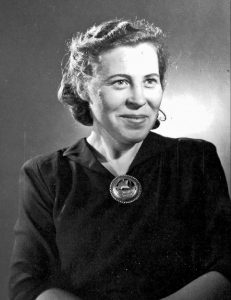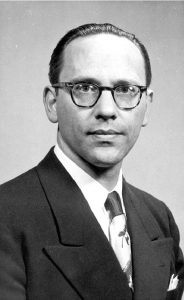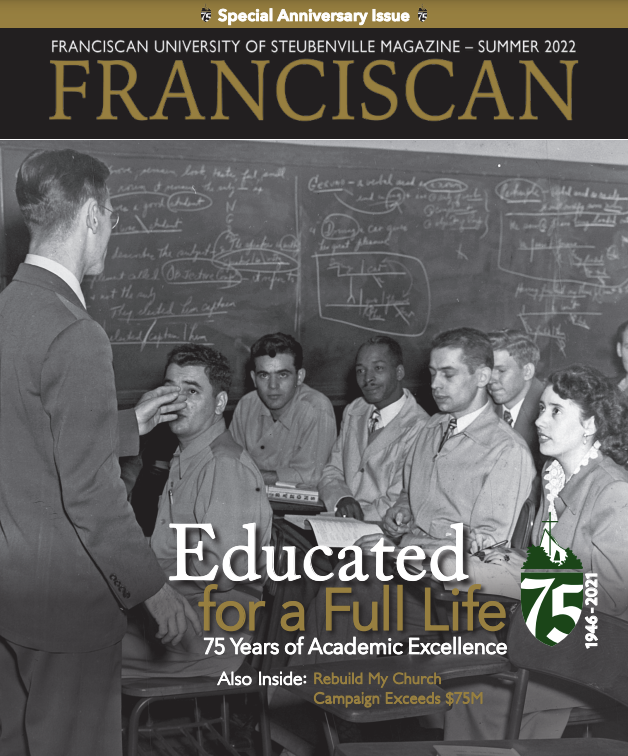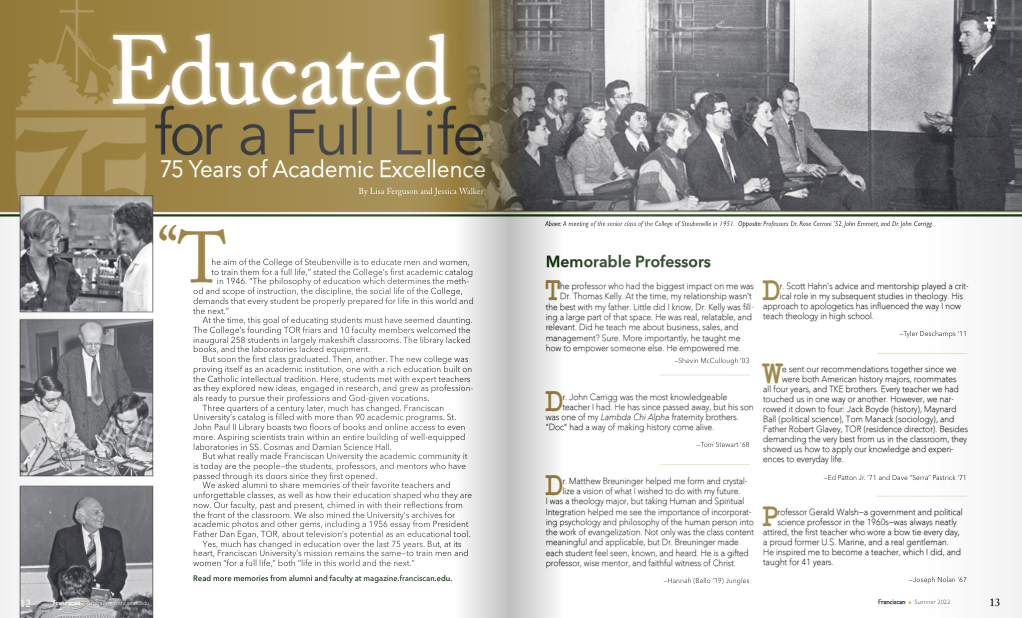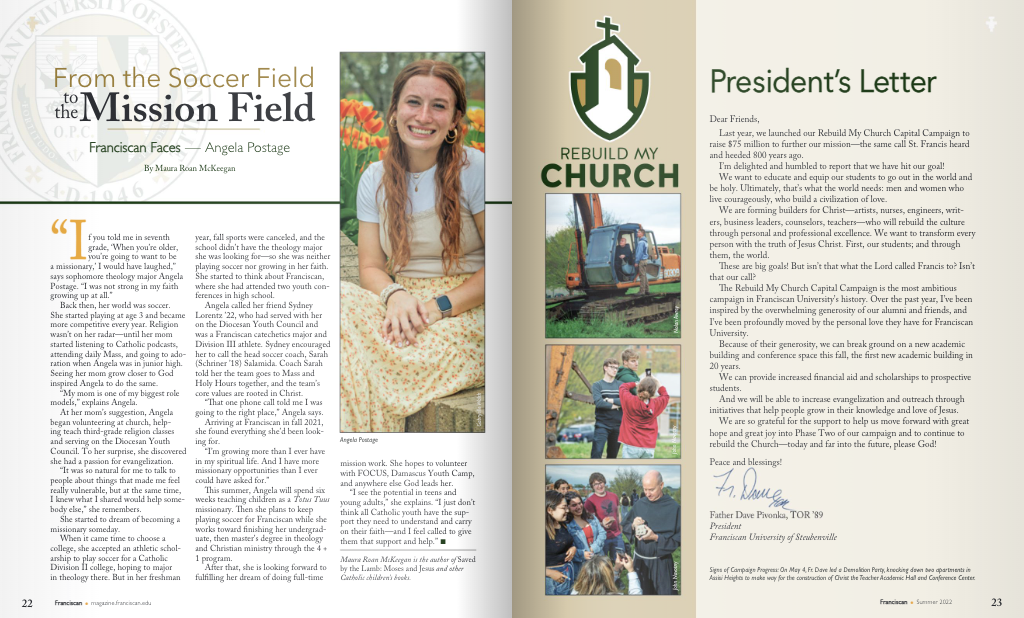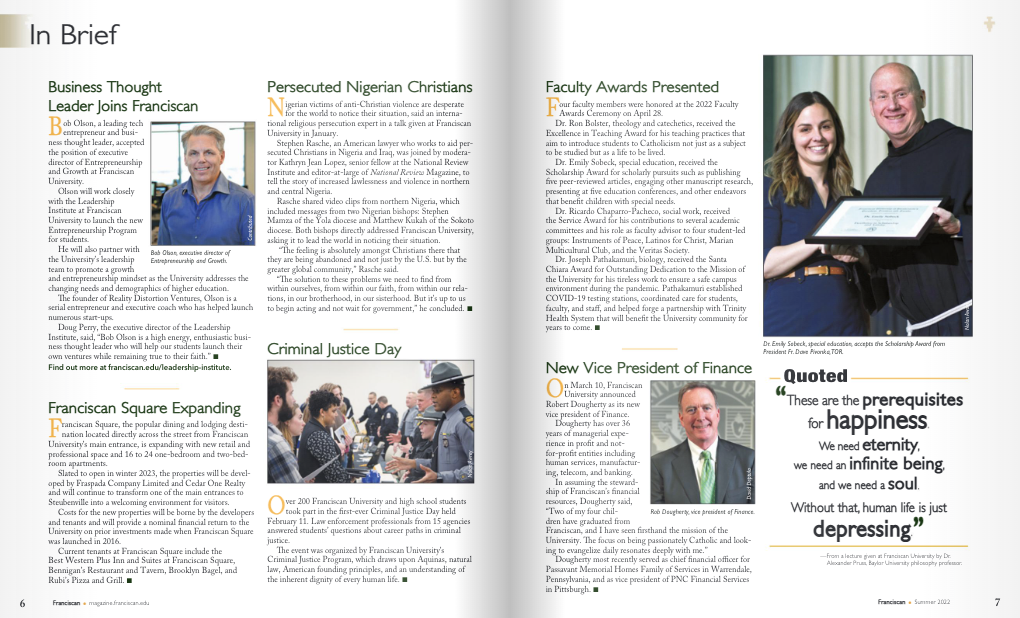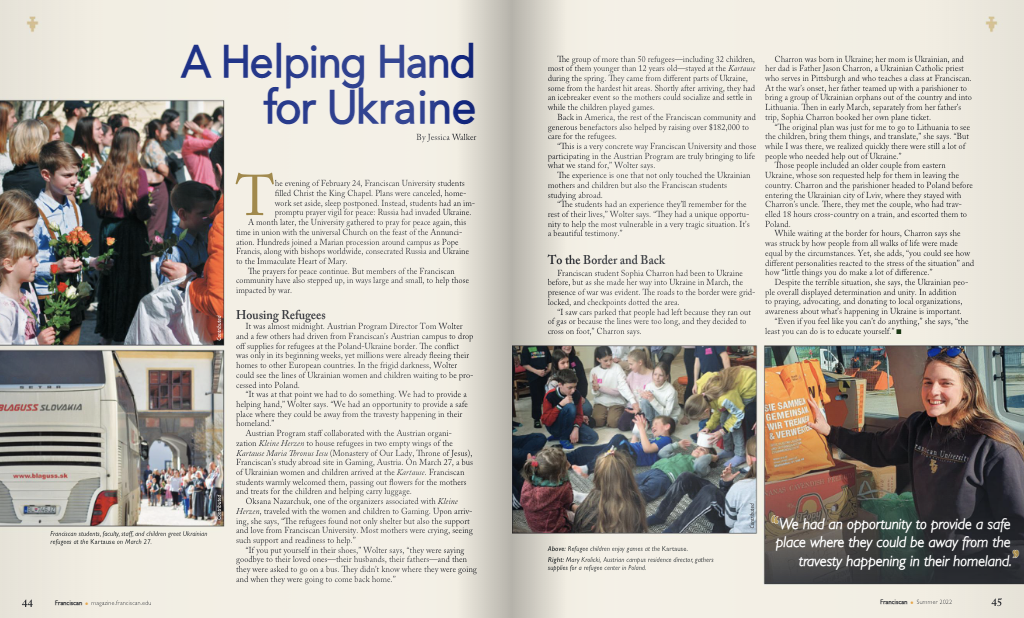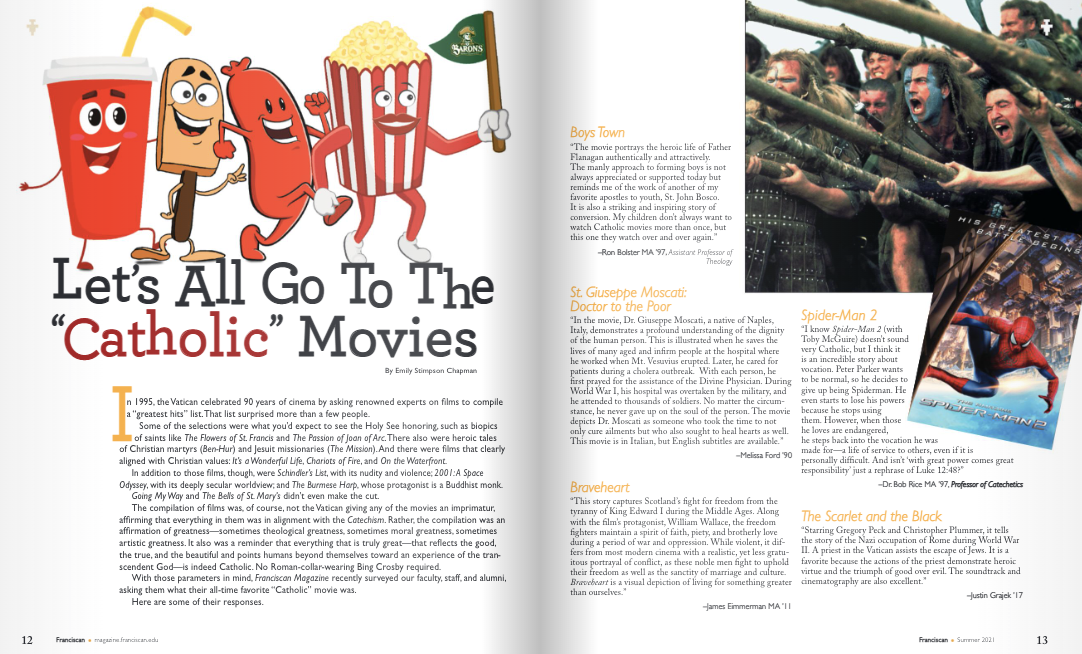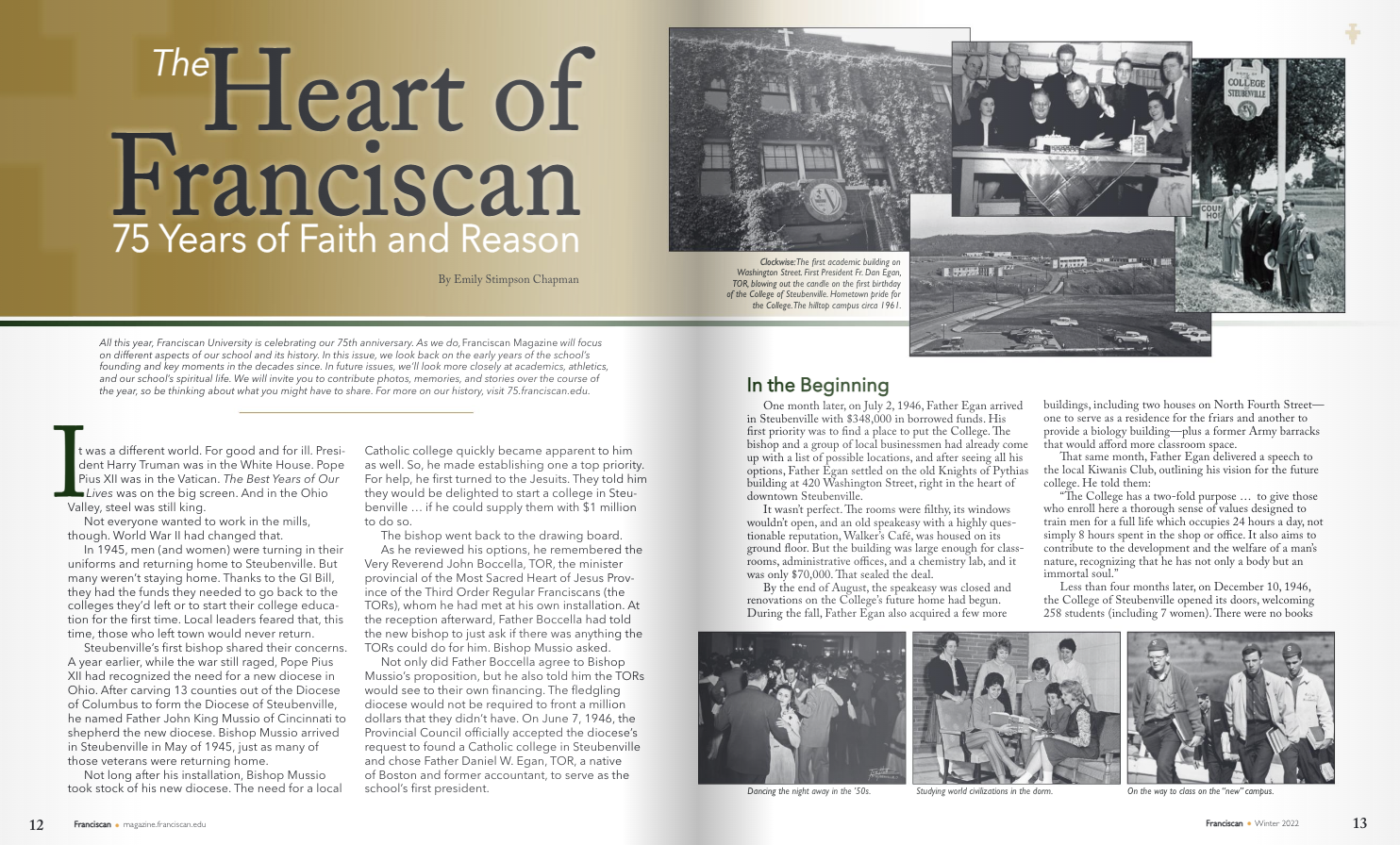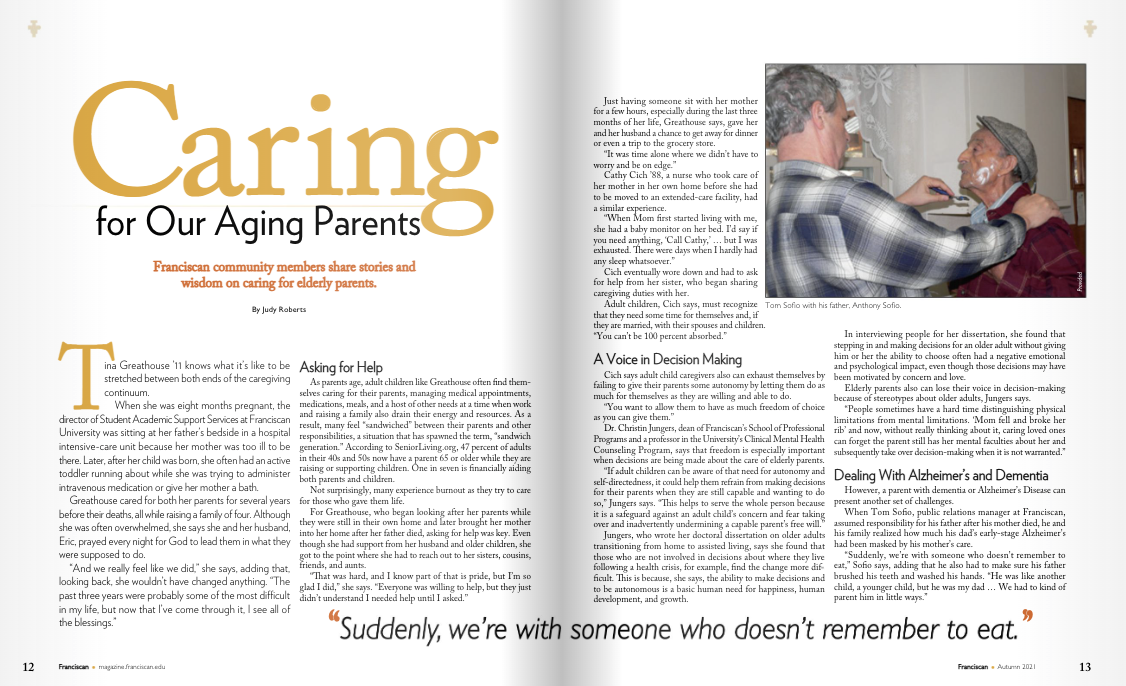Memorable Professors
The professor who had the biggest impact on me was Dr. Thomas Kelly. At the time, my relationship wasn’t the best with my father. Little did I know, Dr. Kelly was filling a large part of that space. He was real, relatable, and relevant. Did he teach me about business, sales, and management? Sure. More importantly, he taught me how to empower someone else. He empowered me.
– Shevin McCullough ’03
Dr. John Carrigg was the most knowledgeable teacher I had. He has since passed away, but his son was one of my Lambda Chi Alpha fraternity brothers. “Doc” had a way of making history come alive.
– Tom Stewart ’68
Dr. Matthew Breuninger helped me form and crystallize a vision of what I wished to do with my future. I was a theology major, but taking Human and Spiritual Integration helped me see the importance of incorporating psychology and philosophy of the human person into the work of evangelization. Not only was the class content meaningful and applicable, but Dr. Breuninger made each student feel seen, known, and heard. He is a gifted professor, wise mentor, and faithful witness of Christ.
– Hannah (Ballo ’19) Jungles
Dr. Scott Hahn’s advice and mentorship played a critical role in my subsequent studies in theology. His approach to apologetics has influenced the way I now teach theology in high school.
– Tyler Deschamps ’11
We sent our recommendations together since we were both American history majors, roommates all four years, and TKE brothers. Every teacher we had touched us in one way or another. However, we narrowed it down to four: Jack Boyde (history), Maynard Ball (political science), Tom Manack (sociology), and Father Robert Glavey, TOR (residence director). Besides demanding the very best from us in the classroom, they showed us how to apply our knowledge and experiences to everyday life.
– Ed Patton Jr. ’71 and Dave “Serra” Pastrick ’71
Professor Gerald Walsh—a government and political science professor in the 1960s—was always neatly attired, the first teacher who wore a bow tie every day, a proud former U.S. Marine, and a real gentleman. He inspired me to become a teacher, which I did, and taught for 41 years.
– Joseph Nolan ’67
No professor had a bigger impact on me than Dr. Robert Doyle. Dr. Doyle takes great interest in the success and future of his students. His quick wit made even three-hour night courses engaging. Dr. Doyle is so much more than just a professor. He is an author, veteran, mentor, friend, and (in my humble opinion) a hero.
– Nicholas Praetzel ’19
I’ve never met Dr. Regis Martin, but such is the case for an online student. I started my master of theology work back when Franciscan conducted “distance learning” through snail mail. Equipped with a box of books, a course outline, and a CD containing audio lectures, I set up at the kitchen table for a solo study of “The Last Things.”
My first (and lasting) impression of Dr. Martin was his voice. If you’re going to hear about death, judgment, heaven, and hell, you want to hear about it from him. A storyteller par excellence, it seemed that he employed the full range of his larynx to describe the blood and dust of ancient times, and the mysterious transition between death and judgment. Indeed, my teacher served up a feast of thoughts to fortify my starving Catholic imagination. With razor sharp wit and impeccable delivery, Dr. Martin set before me the ironies of life and death. His observations resonate with me still.
– Ellen Campbell MA ’20
Social work professor Dr. Jerry Jo Gilham said, “You can always get another job, but you can never get another soul.” She prepared us for ethical practice and encouraged us to conduct ourselves with integrity in the workplace.
– Elise Chabot ’12 MA ’21
My advisor and primary professor was Dr. John Carrigg. I bonded with him because both of us loved history and teaching it. However, half of what I learned as an undergraduate was due to Father Francis Martin. Even though I only took a few courses with him, no one else came close to the impact he had on me.
– Jay Gerhart ’84
Unforgettable Classes
My husband and I began dating in Gaming, Austria, and we were in a Christian Marriage class with Dr. Donald Asci. While studying for exams, my husband and I had long discussions about natural family planning, marital debt, and chastity. Those discussions helped us learn very quickly that we were on the same page and have led to a wonderful marriage of almost 20 years!
– Colleen (Sweeney ’01) Martin
In Inclusive Early Childhood Education, the discussion partly involves talking about prenatal development. During one of my classes, I commented that my twin and I experienced the same prenatal environment. A student said, “That means you were womb mates!” This caused a solid three minutes of uncontrollable laughter. Moments like these when the students apply the course content in memorable ways, and the tight-knit classroom community we have formed together are what stand out for me.
– Dr. Megan Reister, Education
“You can always get another job, but you can never get another soul.”
Evangelizing Young People in the U.S. with Dr. Bob Rice is a course I have never forgotten—not just because of its rich content or the dynamism of Dr. Rice in his approach, but also because of its pragmatic nature and relevance to my pastoral ministry as a priest, especially in serving the needs of our young people with the ultimate aim of bringing them nearer to Christ and his Church. This course helped me come to understand the psychology of our young people, especially their faith journey amidst the many challenges posed by the present youth culture.
– Father Jude Ogheneochuko Emunemu MA ’22
I will never forget Dr. Peter Colosi’s Ethics class. For the first time in my life, I was not simply learning facts but learning what it means to be human. I also realized whatever career we choose in life is always secondary to the person we become.
– Julie Thimons ’03
Human Embryology was by far my favorite course to teach. The unfathomable beauty and mystery of conception and embryonic development is so mind boggling that, if all people realized this, the word “abortion” would cease to exist!
A highlight occurred during the final exam one semester. A young lady who had 16 years of Catholic education wrote on the last page of the exam, “I came into this course being pro-choice; I am leaving this course being pro-life!” Certainly, a fitting capstone for a teaching career.
– Professor Ed Bessler, Biology (retired)
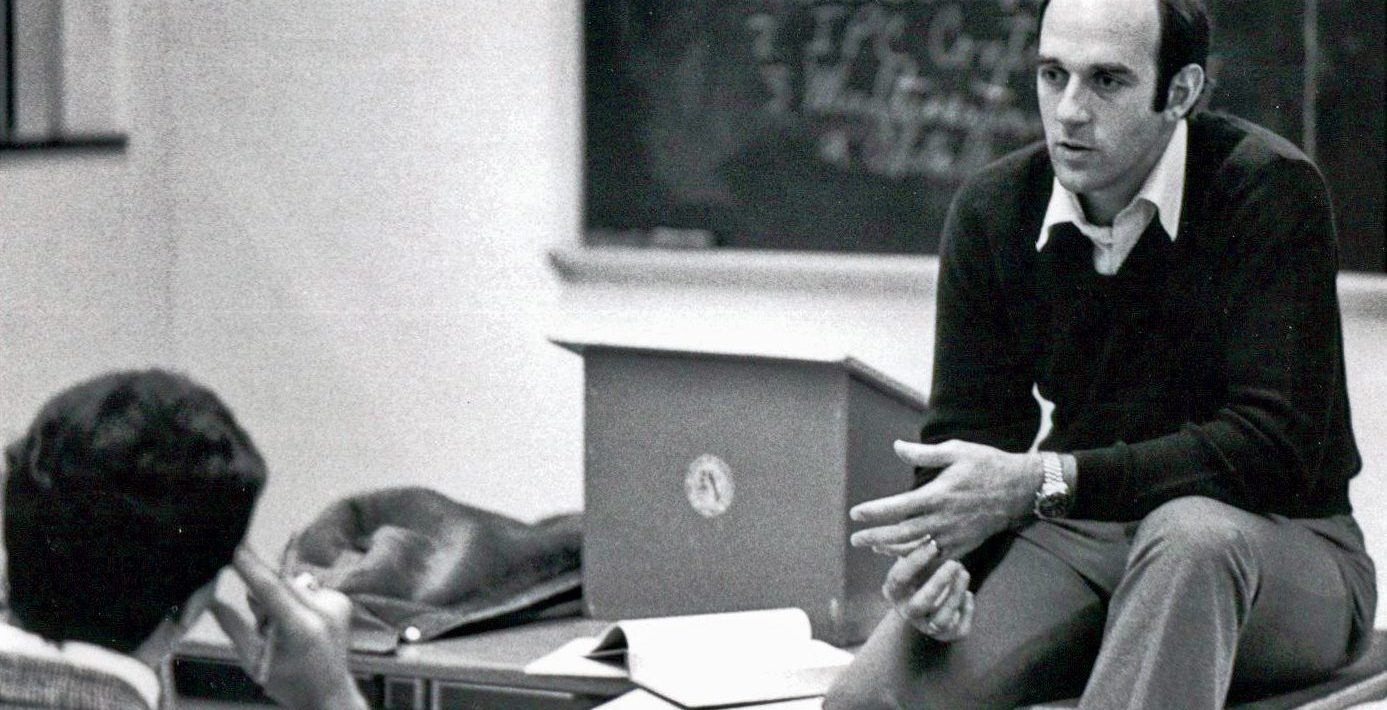
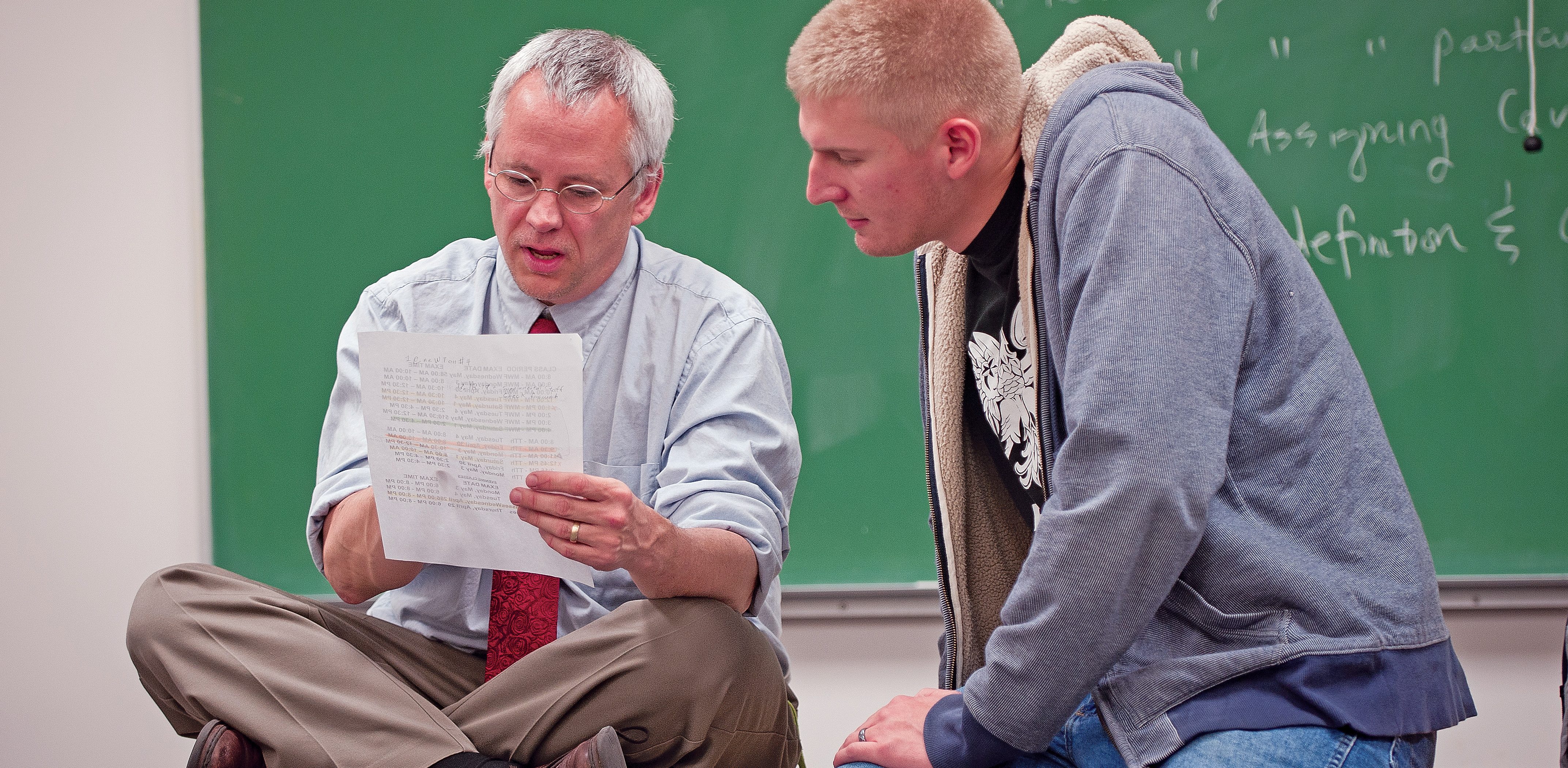
I was hired during the Nixon price controls. I knew the students were going to ask me questions about the policy, so I went to the library and read all that I could about the price control program. Not one student asked me a question about the subject. That is the first lesson I learned as a teacher: No one is more interested in the subject you teach than you are.
– Professor Joseph Zoric, Economics (retired)
Dr. Stephen Krason’s Introduction to Political Science class was brutal, but I survived and fell in love with architectonic science. His use of the Socratic method helped me appreciate the distinction between remembering and understanding. Like Dr. Krason, I went on to law school and used my degree to help the pro-life cause. Now, as I prepare for Army War College, I am returning to texts we discussed in his classes.
– David Wendell ’95
And Beyond
My current vocation and profession is as a stay-at-home mother of five children, and I homeschool my two oldest. I couldn’t have been better prepared for this chapter in my life than by Franciscan University. There are other universities that may offer the same level of education but none that offer the formation. We are formed to be disciples and witnesses, to embrace and thrive in our vocations, and we are given the tools to do so.
– Lindsey (Webb ’07) Rutkowski
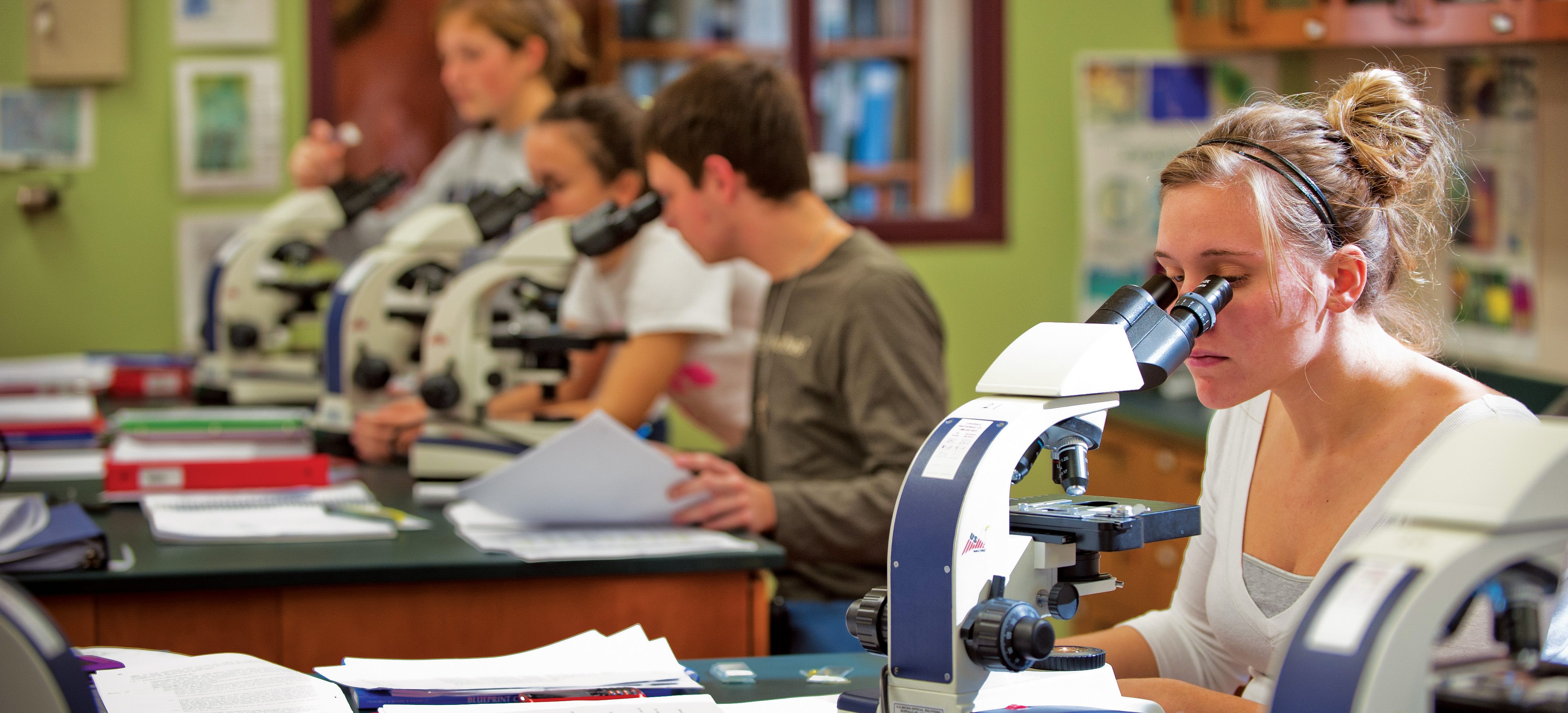
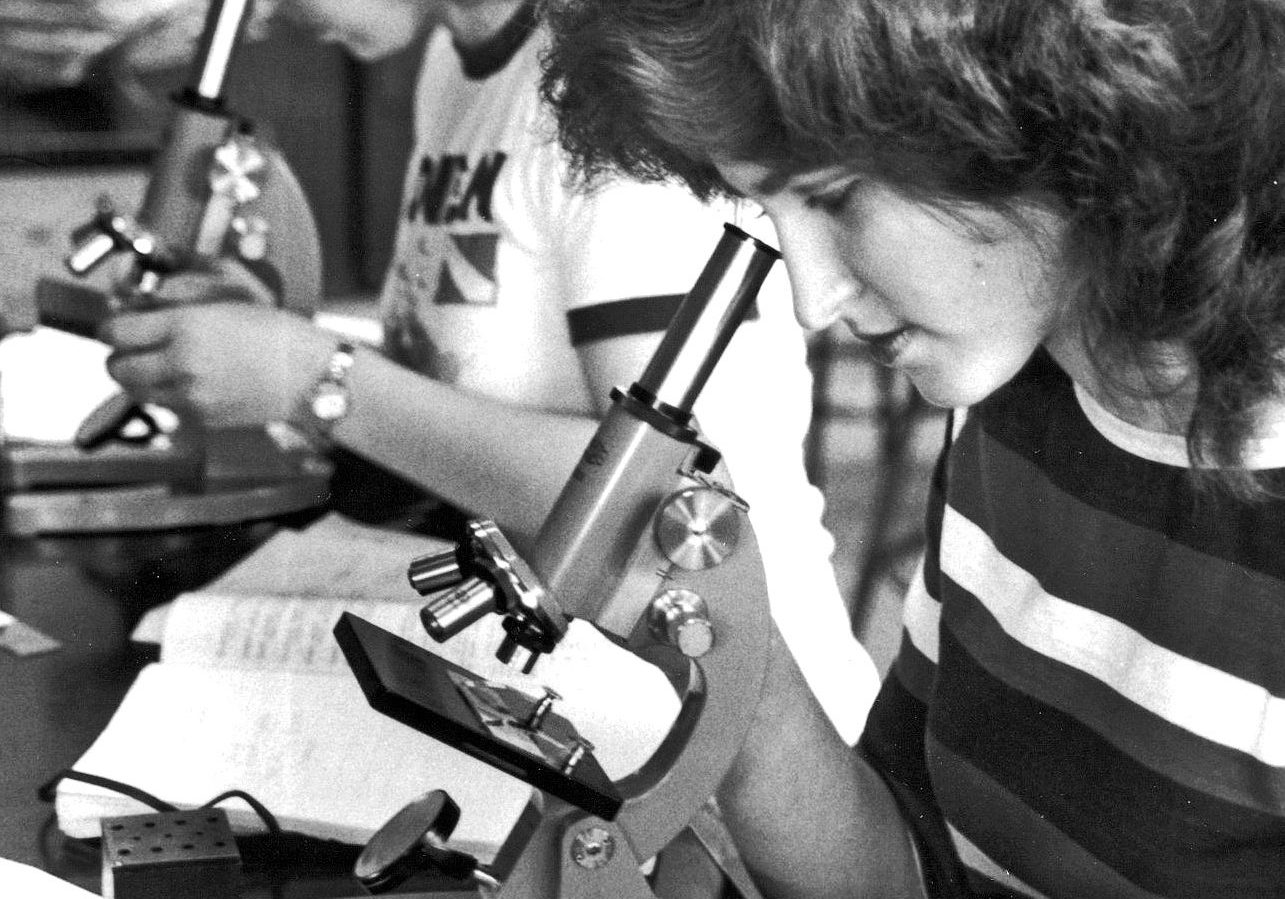
“No one is more interested in the subject you teach than you are.”
Studying history at Franciscan University has made all the difference in my career as a writer. I wasn’t taught to simply memorize dates and names, but rather how to think critically and analyze primary sources through the lens of truth.
– Hillary (Senour ’11) Mast
At each graduation, I always felt proud and confident we were sending forth into the world a wave of wonderful new disciples who, through their lives of faith, would be a great force for good in the Church and wherever fate took them. I have since heard, many times over, of how individuals have constituted a positive influence in the lives of others and in the building of a better world for tomorrow.
– Father Dominic Scotto, TOR, Theology (retired)
I discovered it was not just the philosophy and theology faculty who took religious and philosophical truth seriously, but—almost without exception—all the other professors in the other disciplines as well. It was then I understood my initial interview with Father Michael Scanlan, TOR, and his close questioning of me about my religious convictions. The kind of faith one finds at Franciscan was no accident.
That clear and unambiguous Catholic vision has continued throughout my tenure at Franciscan University. The friars, faculty, administration, groundskeepers, the people washing our dishes and cleaning our buildings: They are practically all Christian and Catholic. Original and actual sin are alive and well at Franciscan, as they are everywhere else in this sad, fallen world. But here we have a taste of a real Catholic intellectual life and culture.
– Dr. James Harold, Philosophy (retired)
I’m a cardiac nurse. Franciscan’s education truly allows me to care for the whole person and to keep focused on the idea that it is more than just a failing organ or a changing body, but a human being suffering and needing attention.
– Marco Laureno ’20
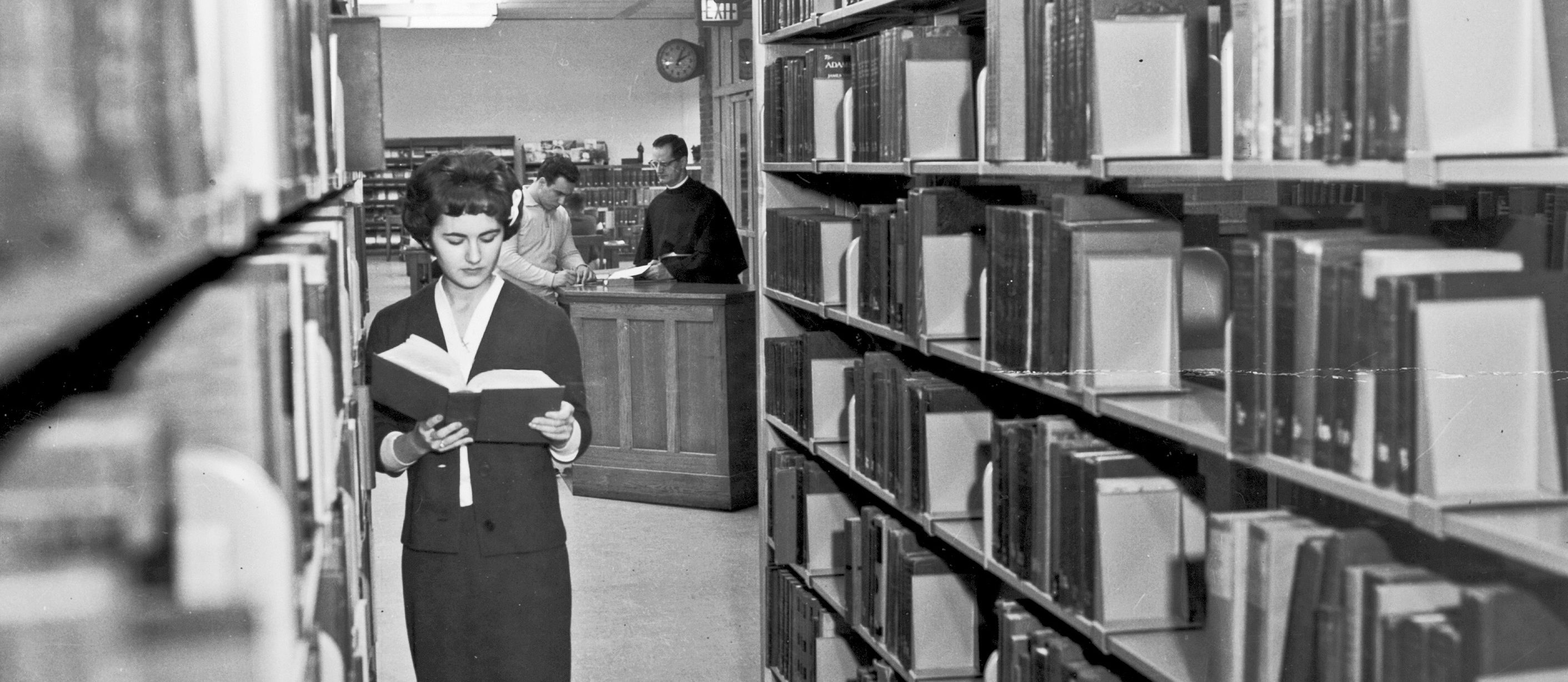
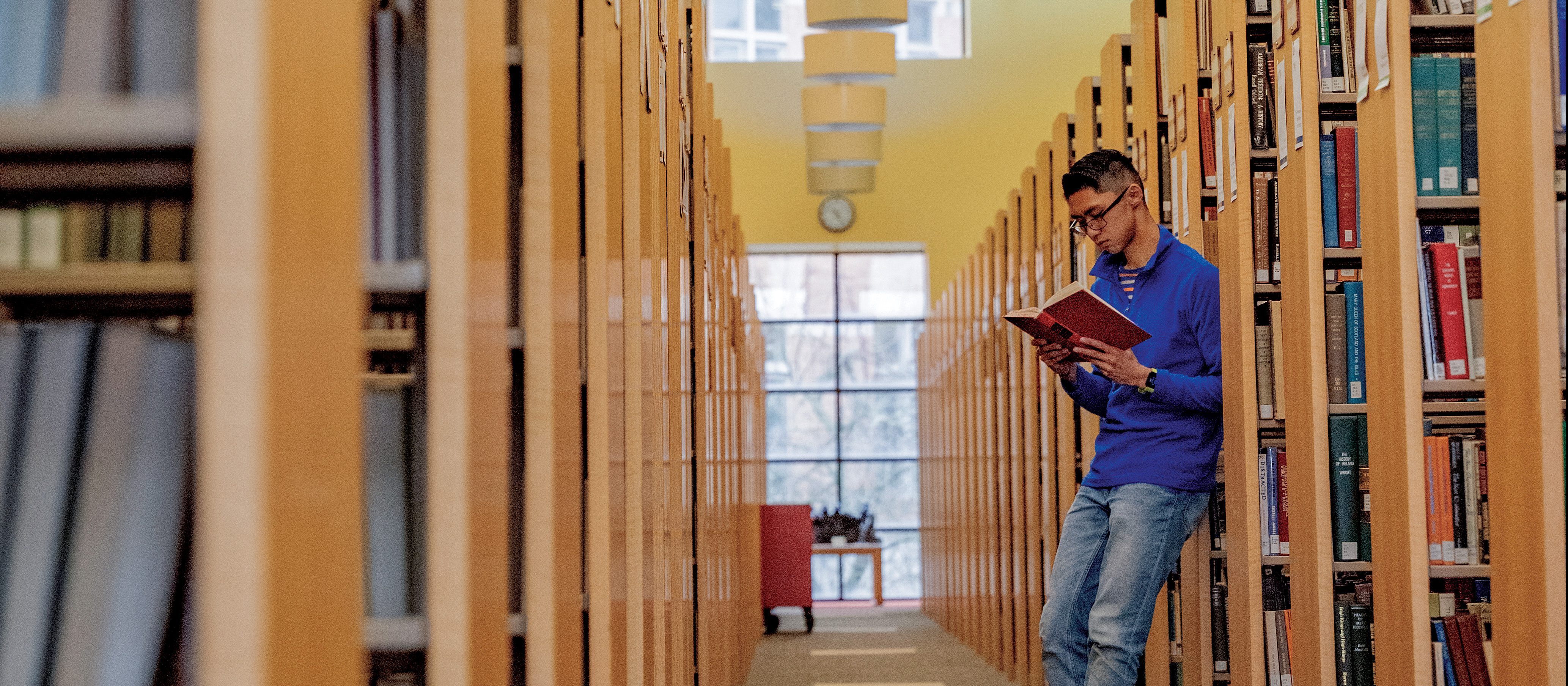
We stand on the shoulders of giants, whose wisdom, were we to break faith with them, would cast us all into a bloody ditch of ignorance. This is why I am here. This is why any of us should be here—to help our students climb onto those shoulders, and thus see the distant vistas of truth and beauty that so animated the lives of those who came before us.
– Dr. Regis Martin, Theology
My fellow students were very special people. We were similar in our beliefs and came from families who wanted their children to have a safe and nurturing environment, which we had. I miss so many of these wonderful people but continue friendships with some to this day.
– Joseph Pricener ’70
Franciscan’s core curriculum is a remarkable body of substantive knowledge. In most colleges and universities, many of our core topics have been disposed of for their alleged datedness and irrelevance. At Franciscan, the past, our tradition, and Western and Catholic ideals remain at the center.
Franciscan remarkably holds fast to the perennial truths of the Judeo-Christian heritage, Catholic orthodoxy, and the requisites for a good, happy, and virtuous life. It is a remarkable oasis in a world plagued by endless relativity and a rudderless morality.
– Dr. Charles Nemeth, Criminal Justice
Professor Letters
Dear Professor Zoric,
I attended Franciscan University 1992-1996 as an international student from Lithuania just as it had escaped the grip of the Soviet Union. I majored in theology, something I never heard of growing up.
I also took your class of Macroeconomics and loved learning ideas I had never heard of. Being exposed to the concepts of free economics was so exciting after years of being raised and brainwashed by never-ending propaganda about Marxism/Leninism!
Four years after college, I went to law school and now work for the federal judiciary. Please know how just one semester in your class has impacted my journey from the Soviet Union to the greatest democracy on earth. But for taking your class and several others like it, I would have lacked confidence in branching out to other disciplines.
May God reward you for all the good you’ve done at Franciscan.
Sincerely,
Vilius Lapas ’96
______________
Dear Dr. Anderson,
Your classes in Theatre Literature and Directing and working with you in the Anathan Theatre productions made a huge impression on me. While I still do have firm memories of the course content and working on the plays (who can forget Brush Up Your Shakespeare or putting together an Irish band for Playboy of the Western World), I was struck by your keen intelligence, dry wit, grace, style, and sense of humor. As I navigated the path from high schooler to professional, you struck me as the kind of woman I wanted to be.
Thank you for being a bright light and an example I still remember to this day, and daily!
Mary-Kate (Spring -09) Lee
______________
Dear Dr. Sunyoger, I had you for Freshman English and Studies in Fiction classes. I bought your book, Life Lessons, and I want to thank you for taking the time to share these stories. It was such a great read, and as I was reading, I could hear your voice as if I were back in class. You wrote, “I hope that in some small way I have enabled them to become better individuals through my teaching.”
Yes, I am a better person because of you. As a first-semester freshman who was so nervous and struggling to find my place, your contagious joy and perpetual smile were a godsend. I am so grateful that of all the Freshman English classes I could have ended up in, God’s Providence allowed me to have you as my teacher.
God Bless,
Brother Mark Engelmeyer, FSC ’12
Beyond Blackboards
By Jessica Walker
Picture a 1950s classroom, and blackboards covered in chalk might come to mind. But Father Dan Egan, TOR, the College of Steubenville’s first president, was already looking past the blackboards for a different tool for education—one that could reach those busy with careers and families.
“Television is a medium of communication of impelling power,” wrote Father Egan in 1956. “No single medium of print comes even close to approaching the number of people television approaches even now, this early in its history.”
In his archived essay “College Television—Some Principles to Guide Policy Formation,” Father Egan discussed why the College should create an educational television program.
“It may be hoped that in time countless people will turn to a college television program for the purpose of improving themselves,” he wrote. “Through the transmission of knowledge, there will be the transmission of ideas, the presentation of facts, controversies, and the concerns of academic disciplines presented for their inherent value in such a way that the people will bring them to bear on decisions they must make.”
What Father Egan envisioned didn’t come to fruition then. But four decades later, Franciscan University started Distance Education for much the same reason. These inaugural 1990s remote students received lectures for their theology master’s work on audio cassettes and CDs.
In 2011, Franciscan launched its first fully online degree program, a master’s in education. And today, students earn their associate, bachelor’s, and master’s degrees online, learning in virtual classrooms. This modern communication medium may be far more advanced than what Father Egan could foresee. But it echoes his desire for the University to share knowledge with those beyond its walls.
“Technology has provided opportunities for Franciscan University to offer online learning across the United States and internationally,” said Dr. Mary Kathryn McVey, whose Education Department first led Franciscan into online education. “We can strive to successfully meet the social, emotional, spiritual, and academic needs of those who attend on- and off-campus learning, thus having a positive impact on students in a variety of professions and vocations around the world.”
Another Choice
By Lisa Ferguson
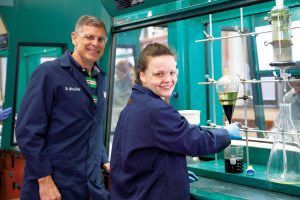 From Franciscan University’s founding, the sciences have been among the most popular majors offered, with some 3,100 alumni graduating with degrees in biology, chemistry, computer science, engineering, nursing, biochemistry, and more since 1950. Among those alums is Frances Buchanan ’21, whose path into the sciences took her by surprise.
From Franciscan University’s founding, the sciences have been among the most popular majors offered, with some 3,100 alumni graduating with degrees in biology, chemistry, computer science, engineering, nursing, biochemistry, and more since 1950. Among those alums is Frances Buchanan ’21, whose path into the sciences took her by surprise.
In 2015, Buchanan read about a hormone protocol pioneered by George Delgado, MD, and others to reverse first-trimester abortions caused by the drug Mifepristone (RU-486).
She immediately went to Dr. Jeff Rohde, chemistry professor and director of the Franciscan Institute for World Health. Their conversation went something like this:
Buchanan: “You should do research to create a more effective way to reverse chemical abortions.”
Rohde: “Right now, this is more of a biology challenge and out of my area of expertise. But you could do it.”
Buchanan: “Did I mention I am a sacred music major?”
Rohde: “Yes. You will need to become a biology major.”
So, Buchanan, an “artist through and through,” added biology as a second major. Although a stretch for her academically, it coincided with her Catholic convictions.
“I don’t remember a time I was not fighting for the unborn,” she says, recounting how she, along with her 10 siblings and parents, would pray outside abortion clinics in her native Texas, adding, “so I jumped at the chance to start this project.”
She knew Delgado’s abortion pill reversal protocol used progesterone injections to counter the effects of Mifepristone, which works by blocking progesterone, a hormone necessary to sustain a pregnancy. But in her research, she discovered St. John’s wort, an herb known to quickly metabolize many medications and make them less effective, and she saw its potential for helping rid the body of Mifepristone.
Working with Rohde and Dr. Mira Kanzelberger, senior research scientist, Buchanan isolated hyperforin, the active component of St. John’s wort, and is seeking to modify its structure so it clears the abortion drug from the mother’s system more quickly.
“We hope the medication we’re working on will give women the choice to save their baby if they change their mind after they’ve started a chemical abortion,” said Rohde. “It’s not going to work in all cases, just like the hormone therapy doesn’t work in all cases, but we hope it will in some. The more we can combine these efforts the better.”
In 2020, pills accounted for 54 percent of U.S. abortions, a jump of 10 percent from the previous year (Guttenmacher Institute).
Rohde also said fully investigating the potential of St. John’s wort could take 20 years or more, but Buchanan does not find that timeline daunting.
“This is my heart. I think saving even one of these children is worth 20 years and many more—we’re literally giving them their lives back,” she said.
Buchanan is exploring opportunities to continue her education and research in Baylor University’s doctoral program in chemistry this fall while still collaborating with Franciscan on aspects of the project.
To support this research project, visit here.
The Great Brain Gain
By Dr. John R. Holmes
In 1946, the College of Steubenville took its first steps into higher education, one among 75 other new colleges that year. The Serviceman’s Readjustment Act of 1944, known as the “G.I. Bill,” guaranteed tuition for soldiers returning from World War II. In 1946, that meant practically the entire college-age male population.
With so many new “G.I. Joe Colleges” (as newspapers called them), finding qualified faculty presented a challenge.
Yet, the faculty in the first decade of the College of Steubenville had a measure of both PhD’s and scholarship that would not be matched again for half a century. How was that possible?
The answer involves another result of the war. Economists call it “Human Capital Flight,” but England’s Royal Academy coined a catchier phrase for it: “The Brain Drain.” Just as the rise of the Nazis and Fascists in the 1930s drove top German scientists to America, the expansion of the Soviet Union after the war drove Eastern Europeans west. Among them were their best and brightest.
When Poland’s top nuclear mind, Dr. Edwin Karl Gora, came to America, he found his first faculty position in Steubenville. Other Eastern European scholars were already here.
In the History Department, Dr. Jožef Felicijan had arrived from Slovenia. His book on social contract theory would one day be quoted in the Congressional Record.
In sociology and education, Dr. Leonida Jürgens came from Estonia, where she had developed innovative methods of early childhood education.
From Lithuania, Dr. Kažys Pakštas brought a profound understanding of the shifting borders and governments of the Baltic states, summed up in his Political Geography of the Baltic Republics (1936).
And then there was Ukraine. Eastern Ukraine had been one of the first “People’s Republics” in 1917, but the west remained Catholic and as democratic as possible—until Russia annexed it in 1939.
If keeping a Catholic identity in the college years is difficult in America, try it in a nation with a mandated atheist ideology. Yet, a young linguist named Dr. Bohdan Lonchyna mobilized Catholic university students in Ukraine, forming the Obovna Society of Catholic Students and publishing their literary journal. When he came to America, guess which college grabbed him? Ask anyone who learned French or Spanish in the early years at the College of Steubenville.



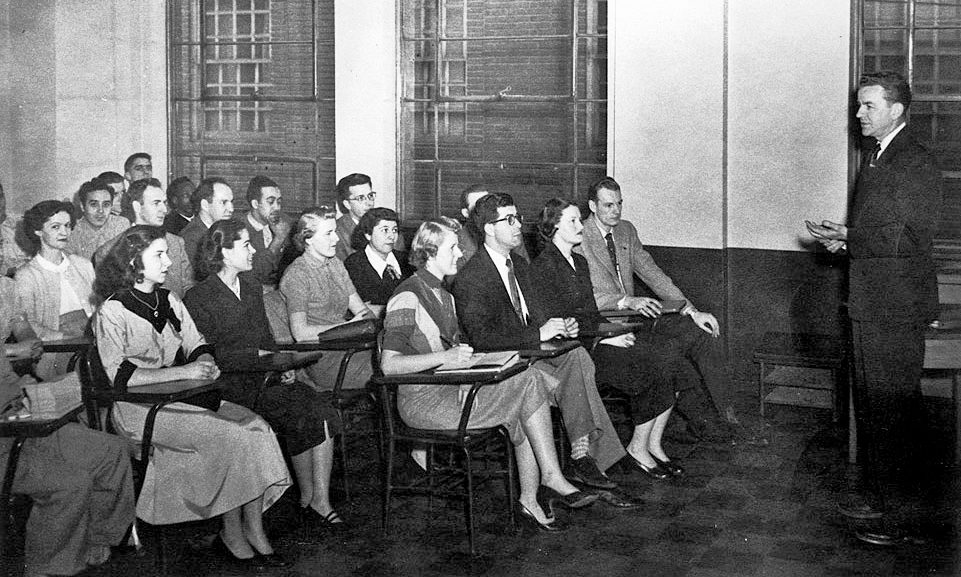






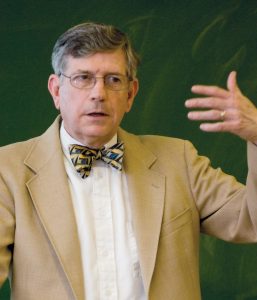
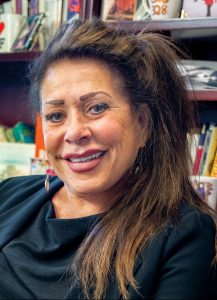
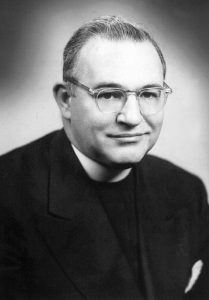
 From Franciscan University’s founding, the sciences have been among the most popular majors offered, with some 3,100 alumni graduating with degrees in biology, chemistry, computer science, engineering, nursing, biochemistry, and more since 1950. Among those alums is Frances Buchanan ’21, whose path into the sciences took her by surprise.
From Franciscan University’s founding, the sciences have been among the most popular majors offered, with some 3,100 alumni graduating with degrees in biology, chemistry, computer science, engineering, nursing, biochemistry, and more since 1950. Among those alums is Frances Buchanan ’21, whose path into the sciences took her by surprise.